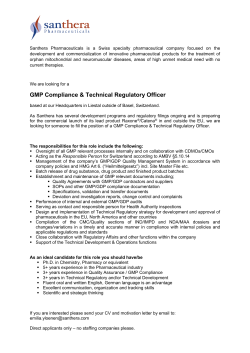
Black and Asian Police Association Newsletter Issue 11
Black and Asian Police Association Greater Manchester Newsletter: Issue 11 Spring 2015. “Iron Sky” This edition is dedicated to the fight for natural justice, for equality and the fight against corruption within Greater Manchester Police. Follow BAPA on Twitter: @BAPAGM Search for: BAPA Greater Manchester When GMP says that it has learned lessons we should all be frightened. We are continually told that as far as race and discrimination are concerned GMP has moved on greatly since the Stephen Lawrence Inquiry in 1998 and the Inquiry report of 1999. “There are two ways to be fooled. One is to believe what isn’t true, the other is to refuse to accept what is true” Soren Kierkegaard. The reality is that the issues that minority groups complained about in the 1990’s are the very same issues that are being complained about today. Despite several false starts such as ‘Operation Catalyst’ [Stephen Lawrence] and the ‘Respect Programme’ [The Secret Policeman]; GMP has continued to allow discrimination and corruption within its ranks. Those who stand against this corruption or who speak out about this corruption become targets or ‘Public Enemies’ dodging criminal and misconduct investigations intended to silent or disgrace them. The term ‘We have learned lessons’ has become a euphemism for ‘Nothing has change or nothing to see here.’ When we hear this term we should all be afraid, very afraid. What will it take to change GMP? Chief inspector John Buttress appeared in an advert for the police in 2005. Ten years later he found himself in the dock, accused by his own colleagues of fraud. Photograph: John Buttress. The Guardian 20th January 2015. ‘Police poster boy cleared of fraud alleges smear campaign by own force’ ‘Top GMP officer cleared of mortgage fraud demands answers over missing page of evidence backing his story’ The Guardian. ‘Cleared Chief Inspector slams malicious fraud probe’ Manchester Evening News. Follow BAPA on Twitter: @BAPAGM Search for: BAPA Greater Manchester Focused on defending the reputation of individuals at all cost. “What I have learned is that a whole lot of people with degrees don’t know a damn thing, and a lot of people with no degrees are brilliant.” John Henrik Clarke We are constantly told that GMP actions are intended to protect the reputation of the force, but what does that mean or look like in reality. In a time of austerity and instant global media it is apparent to me that what GMP are actually doing is protecting individuals within the force; the higher the rank the greater the protection. The reputation of the force has nothing to do with it whatsoever. If it did then why are we continually subjected to the types of negative media reporting that leaves so many of us completely flabbergasted and exhausted. The ultimate measure of how GMP treats its staff is when staff members take the force to court, either through civil court or via an employment tribunal. Both of these processes cost the taxpayer huge amounts of a money as these type of actions are costly to instigate and defend. I am not advocating that the force admits wrongdoing if no wrongdoing occurs; the problem here is that GMP never admits wrongdoing, even when faced with overwhelming evidence. The consequence of this approach is that the force has no credibility in the community or within sections of its workforce or the legal system. There are other consequences; the impact that these actions have on the plaintiff [person bringing the action] is neither acknowledged nor appreciated by the force. They are expected to be productive members of the force once the action is over; the alternative is leaving the force completely. Rather than improve the systems within GMP, a claim that I am sure the force will make, in reality GMP are making more difficult for those subject to discrimination to have their complaints investigated. New policies lean towards mediation allowing the discriminators to go unpunished and protected from any type of sanction. At a time that GMP wants to recruit a more diverse workforce the outlook for those within the force from BME backgrounds at best is uncertain at worst bleak. By Paul Bailey. Follow BAPA on Twitter: @BAPAGM Search for: BAPA Greater Manchester Do you remember this?…… www.bapagm.co.uk Police Corruption Within Greater Manchester Police Professional Standards Branch. Part One. th 17 November 2013. http://bapagm.co.uk/police-corruption-within-greater-manchester-police-professional-standardsbranch-part-one/ The Professional Standards Branch (PSB) within Greater Manchester Police (GMP) is tasked with investigating allegations of misconduct committed by Police Officers or members of Support Staff. The PSB are essentially the Gate-keepers of integrity, of scrutiny, of professional behaviour and of honesty. The communities of Greater Manchester therefore should have confidence that the PSB investigations are fair, proportionate and lawful. Over a number of months during 2013 it has been uncovered that the PSB investigations within GMP are less than fair. A number of reports have been written by legal professionals and other professionals within the criminal justice system that have identified corruption and dishonesty within the branch and within it’s investigations. Indeed some of the reports suggest that PSB officers have committed misconduct offences and even criminal offences whilst conducting their investigations. The allegations include: PSB investigations pursuing only lines of enquiry that support their belief Ignoring evidence Suppressing evidence Failing to disclose evidence Providing misleading evidence. We all should be alarmed and outraged by these allegations. Having trust in the police service is fundamental to a law abiding society. Once this trust breaks down it will be the most vulnerable who are affected. If these are allegations levelled at the the Gate-keepers of honesty and integrity within GMP how can we have any confidence in any police investigation. The Chief Constable Sir Peter Fahy and Police and Crime Commissioner Tony Lloyd have both been made aware of these allegations but to date have failed to launch any type of independent investigation. Response from the Chief Constable Sir Peter Fahy 22nd November 2013. Allegations of misconduct made against all GMP officers and staff are taken very seriously; allegations against staff within the Professional Standards Branch are no different. The Police Federation have raised specific concerns about the conduct of some recent investigations by the Follow BAPA on Twitter: @BAPAGM Search for: BAPA Greater Manchester Professional Standards Branch and those concerns will be the subject of an independent severity assessment by a Professional Standards Branch in another Force. That severity assessment will establish whether there are grounds for a misconduct and/or criminal investigation; whether there are issues of performance to be addressed; and whether there are any lessons to be learned. The Force has never worked more closely with staff associations and support networks than it does now in reviewing processes, discussing concerns and aiming for proportionate and common sense outcomes while confronting wrongdoing. I am proud of the positive work being undertaken by committed officers and staff across the Force including those in the Professional Standards Branch. Staff work in challenging complex situations and while we must always aim for the highest standards of integrity we must distinguish between those actions which are clear misconduct and those which are honestly made mistakes where staff are trying to do their best in difficult situations. As Chief Constable I have been clear that fundamental change is needed to the culture of this force and in particular the way it deals with difference , the way it reacts when things go wrong and the way it consults and involves its staff. That is why we have made such a fundamental shift to neighbourhood policing, why we commissioned independent research on disproportionality, why we are pushing for an independent ombudsman to oversee the investigation of complaints, why we want to establish an ethics committee and why we are piloting the use of body worn video. We have also made fundamental changes to the way we recruit staff and current campaigns are achieving a far higher level of representation of minority groups. Chief Supt Rumney and his team in PSB have been leading important aspects of this work and remain focused on working closely with all staff associations and support networks to promote fairness and the highest standards of integrity. BAPA Wins Appeal Against Dismissal. BAPA has won an appeal on behalf of a BME member of staff who was wrongfully dismissed in August 2014. DC Paul Bailey, representing the staff member at the hearing on 2nd February 2015, argued that the dismissal was unfair not only because the process adopted by GMP amounted to bullying but that GMP had not considered the Equality Act when the decision to dismiss the Operational Support Officer was made. The panel accepted that the member of staff had been treated unfairly and that the right thing to do was to reinstate OSO with immediate effect. Paul Bailey said “There are many people who pontificate about the need for staff associations like BAPA, cases like this one demonstrate the need and worth of the association.” “I hope that the individual concerned will make the most of the opportunity that has been afforded to them.” Follow BAPA on Twitter: @BAPAGM Search for: BAPA Greater Manchester The Passage of the 1965 Race Relations Act Our Relations Journey This year marks the 50th anniversary of the first race relations act to be passed in the United Kingdom; interestingly it is also the 50th anniversary since the assassination of the African American Human rights and Civil rights activist Malcolm X (pictured). One might ask the question, how do these two things relate to each other? First of all Malcolm X was oft quoted saying “of all the things you can study, history is best qualified to reward your research” Therefore to understand why the race relations act was passed in 1965, it would perhaps be helpful to understand what went before. Notwithstanding the long and torturous history of racist oppression through enslavement and colonialism, the recently broadcast Chanel 4 documentary ‘Britain’s Racist Election’ provided an excellent starting point for understanding the need for legislative intervention back then. This documentary graphically illustrated how it was perfectly legal for Politicians to blatantly use race as a factor in dividing people for political gain and to deny citizens public services and employment on the basis of race. The program reminded us that in 1964 Malcolm X took the time to travel to the Smethwick constituency in Birmingham and show solidarity with the people. One of the election slogans was “If you want a N****r for a neighbor vote Labour”. It was probably not a coincidence either that Norwell Roberts made history by being the first Black Police Officer to join the Metropolitan Police in 1965. We know from his narrative that he suffered extreme prejudice and outright discrimination throughout his career as the 1965 act did not offer protection in employment terms to Police Officers. The act, as we often hear was a step in the right direction and paved the way for a more strengthened race relations act in 1976 which although it offered employment protection, took over 20 years to be upgraded in order to bring Policing into the twenty first century, (kicking and screaming of course) Throughout the period of the turn of this century BAPA has undoubtedly played a significant role in supporting Police Officers in terms of utilizing the protection of race relations laws. Follow BAPA on Twitter: @BAPAGM Search for: BAPA Greater Manchester This can be seen through a number of highly publicized and successful Employment Tribunal cases brought against the force. But the more important issue to ponder is whether or not any organizational learning is actually taking place. The recent intervention by the former Chair of the Equality Human Rights Commission Trevor Phillips was particularly unhelpful in terms of the broader lessons to be learned from 50 years of race relations laws. He argued in a Chanel 4 documentary, that so-called political correctness was getting in the way of speaking honestly about issues of race and laid the blame squarely at the door of anti-racist activist. There were numerous flaws in the presentation of statistics within this documentary but perhaps his greatest error of judgment was for him not to recognise how his documentary will be used for nasty political purposes raising the spectre of the 1964 Smethwick election. If the commemoration of this 50th anniversary is to mean anything for Greater Manchester Police, then the greatest tribute would be that the lessons from the current four (4) (at least) race related cases currently lined up against GMP are actually learned and that a renewed relentless effort is made to bring an end to race discrimination. The first step on the route map towards ending discrimination must involve an honest and painstaking examination of the history of the organisation's race relations journey with a vision towards a culture of empathy and social justice. By Charles Crichlow 'If you don’t know where you are going, any road will take you there' (unknown) Paul Bailey Employment Tribunal (update) The Employment Tribunal has ruled that GMP victimised and racially discriminated against DC Paul Bailey. In spite of comments attributed to Deputy Chief Constable Ian Hopkins, who stated that GMP agrees with the ruling and that GMP accepts the tribunal’s findings, GMP has lodged a notice of appeal. No further details about the appeal are known at this time. http://www.manchestereveningnews.co.uk/news/greater-manchester-news/black-gmp-policeofficer-wins-8649071 Follow BAPA on Twitter: @BAPAGM Search for: BAPA Greater Manchester
© Copyright 2025









